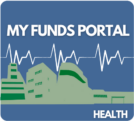Virtual Physical Therapy visits are a great way to ensure that you are able to establish and maintain your Physical Therapy goals in a time where you may not be able to visit our centers. While these visits do have some limitations, there are ways that you can maximize this experience to get the most out of your Therapy program.
What does a Virtual Initial Evaluation Visit consist of?
An initial evaluation virtual visit is similar to an in-person visit and will consist of the following:
A brief introduction and overview of the format
- Patient history. This is where a physical therapist will ask questions about your symptoms, how they came about and what activities and movements worsen or improve the symptoms, as well as review your past medical history.
- Orthopedic physical examination. This is a movement-based exam where a therapist will take you through a series of movements and document any changes to your symptoms. We will be doing some test exercises here and seeing how those exercises affect your pain levels and/or strength and motion.
- Review and Treatment Plan. At this point, we will review the findings as well as your exercises to be performed at home and our plan moving forward. This is also an opportunity for you to ask any questions and address any concerns.
What does a Virtual Follow-up Visit consist of?
A follow-up virtual visit is similar to an in-person visit and will consist of the following:
- Symptom and movement re-check. A physical therapist or physical therapist assistant will re-check your symptoms and mobility to check your progress.
- Review Exercises. A physical therapist or physical therapist assistant will review the exercises that were assigned during your initial consultation. This is a chance to check your form over video, test the effect of the exercises on your symptoms, and address any questions or concerns.
- Exercise Update. Your exercises will be updated, adding new/more challenging movements as needed.
How does a physical examination work over video?
The camera on your phone or laptop will work. There are only 3 camera angles we need to fully assess your movement. All you have to do is adjust the height of your device. Here are the three positions:
1. Floor View: resting your phone or laptop upright on the floor (against a wall or other object).
2. Chair View: phone or laptop resting on the seat of a chair
3. Desk View: phone or laptop supported on a desk or countertop (may need to place a book or coffee mug on table to prevent phone from falling)
With only these three different views, we can test and record numerous movements at different angles. Here is how these 3 views would work:

How Do I Prepare For My Physical Therapy Virtual Visit?
Preparation prior to the Virtual Visit is key to a successful outcome. Here are a few items you should have ready to go:
- Find a quiet, private room or area in your home. We want to be in an area free of distraction, which includes digital distraction. Please silence telephones, televisions, computers…etc.
- Make sure the room is well-lit.
- Ensure that you are using a reliable phone or computer for the duration of the call. The equipment should be fully charged and internet/wifi should be accessible.
- Wear comfortable, loose-fitting clothing. If we are looking at your knee or ankle, please wear shorts. If it is your shoulder/arm, a sleeveless or short-sleeved shirt would be best.
- Ensure an emergency contact is nearby. While adverse effects from exercise and movement are highly unlikely during a virtual visit, it is a good idea to have someone nearby in case of an emergency, if possible. If this is not possible, please provide us with an emergency contact that is available.
- Prepare equipment. Generally speaking, very little equipment is needed. However, there are some pieces that will prove useful. Please have these ready prior to your visit time. If you do not have all of these items, do not worry. We can still work with whatever you have available:
- A rolled up towel or lumbar roll (such as pictured below specifically for low back issues)

- At least one chair, but preferably two chairs (the chairs should be firm and the height of one of the chairs should rise to the mid-back or bra-line)
- A belt or strap (a sheet or towel works as well)
- A desk or countertop
- Small ball (such as a soccer ball)
- A light weight. This could be a gallon or half-gallon of milk/water, dumbbell, weight plate, resistance band, or even a heavy book.
- Thick, Soft pillow. Used for kneeling positions to protect the kneecap.
- Enough space to be able to move, stretch, lay on the floor.
- A doorway. useful if we are testing specific movements of the low back.
- If you are missing some of these items, do not worry. You do not need to rush out to the store to buy them.
If you have any questions or concerns, please feel free to contact your health center physical therapy department.
Brooklyn Physical Therapy- (718) 858-7200 ext. 2277
Queens Physical Therapy– (718) 361-5100 ext. 3570
Midtown Physical Therapy– (212) 586-1550 ext. 5358
Harlem Physical Therapy– (212) 923-2525 ext. 7267

